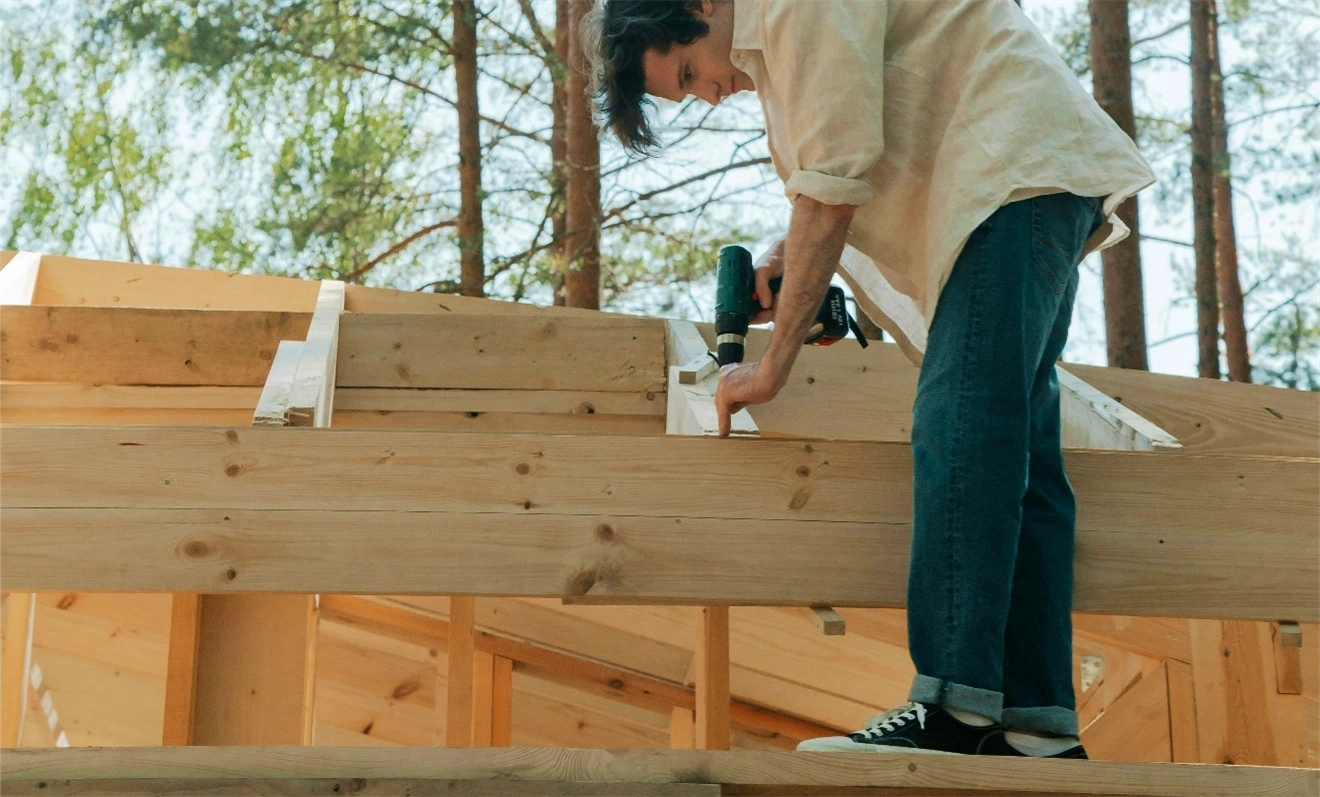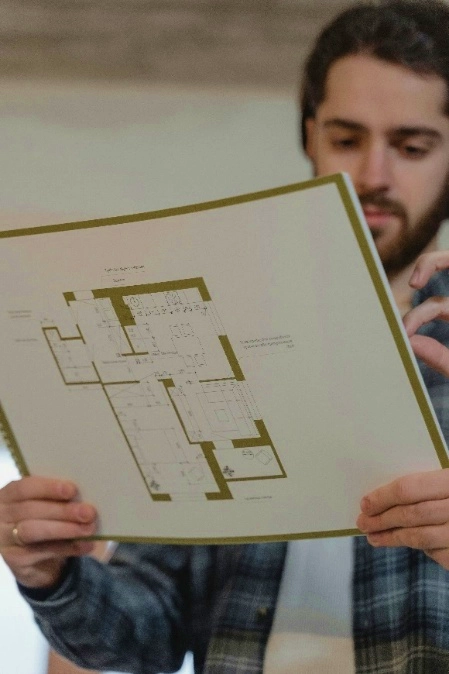
Great question! We generally talk about “getting a deed to a home.” But the accurate phrase would be “getting the deed to the land.” The actual, built home does not have a deed.
Let’s go a bit deeper. What do people who build their own homes need to know about their deeds?
Is a Home Built by the Land Owner Automatically Covered by the Original Deed to the Land?
A person who buys land from a seller gets a deed that designates ownership to a specific parcel with all improvements. This means the owner holds the deed to land plus buildings constructed on it already, or later.
A deed could state exceptions and restrictions. A buyer should read it carefully. The buyer needs to know that nothing appears in the deed language to rule out any future goals for the land.
Your deed should be on record with the county, and you should have the stamped original in your records.
Some local deed recorders make property records available online. Check with your county recorder. Contact your local recorder by using the state and local listings here.
Should a Buyer Who Plans to Build on the Land Purchase Title Insurance?
As a good general rule, yes, it makes sense to buy a title insurance policy when buying the land.
Building a home is a massive investment. It takes time, money, vision, and stamina. A buyer can be more confident about the decision to build when a good title insurance company is committed to protecting the title.
OK, what about later on? Title insurance is something you buy at the initial point, when you formally receive the deed. So, what if you already own the land, and didn’t get a title insurance policy?
In this case, speak to a title company near the site where you are building the new home. A title company might agree to put a policy in place for the title with a new structure. If so, the title specialist can walk you through the necessary paperwork. If you have ownership of land and a home backed by a title company, you have hedged your risks.
How Does a Buyer Get the Deed After Builder-Financed Construction?
Many buyers have general contractors handling the building of their new homes. Where this is the case, a builder might finance the project. This means the builder takes care of:
- Working with engineers and architects in creating the building plans.
- Applying for the necessary permits, approvals, and exemptions.
- Ordering the building inspections and ensuring the work is up to code.
Taking this route involves getting a construction loan that becomes a mortgage on the home. In these agreements, the borrower deeds the property to the builder. After the home construction is done, the borrower buys the home from the builder and receives a new deed.
The parties can prepare the deed themselves. Often, they have an attorney review, or prepare, the deed that transfers ownership and control from builder to borrower.
Is a Property Survey Necessary?

Absolutely. A surveyor works with the current deed to the land — as well as maps and historical records — to verify boundaries and dimensions. A survey report affirms every detail of the land you have. It locates, among other elements:
- All measurements and all boundaries. It shows that the planned building doesn’t go over the lines or required setbacks from the public right of way.
- Structures including buildings, accessory housing units, walls and fences on the land.
- Natural features and landmarks.
- Access routes and walkways.
- Water and sewer systems.
- Utility easements and other areas where digging or building is restricted.
The property survey is key to averting disagreements with neighbors. The surveyor looks for any existing public survey, and cross-checks adjacent property deeds. The survey report should spot any conflicts between landowners. This way, buyers can spot any areas that need resolution (for example, through easement agreements).
To find professionals who can update the survey to account for your new building, check with the county recorder of deeds for the existing land survey, and look for the company’s name on it. Bringing someone out who has familiarity with the property and the earlier surveyor’s field notes could make your new survey simpler to complete. Another resource is the list of National Society of Professional Surveyors.
No Bank Was Involved. Does the Owner Have a Deed to Prove Ownership?
So, you financed the work without applying for a construction loan. That’s fine. As noted above, someone who buys land receives a deed that proves the title belongs to the buyer. As long as the deed language says the deed includes all improvements, you’re good.
In short, a house you build does not require the creation of a new deed. If you accomplish the work independently of a bank, you already hold the deed. Your local building department has the information you’ll need. You’ll work with it to:
- Submit your initial building plans.
- Get the building approvals and permits.
- Complete a series of inspections.
- Receive the certificate of occupancy.
A survey matters, even with no lending company requiring it. A survey attests to the continued accuracy of the deed’s legal description. If there are new landmarks and structures on the land, the legal property description needs to reflect their presence. That starts with the survey.
Keep this in mind, too. One day in the future you might decide to transfer the deed. At that time, a title insurer will go over your updated survey, checking for any difference between the survey report and what’s in the county records. If you commission a survey, you’re prepared to address any conflicts or uncertainties.
When in Doubt, Ask a Pro
Whether you hire a general contractor to handle the construction, or do the work with your own hands, getting the deed to your new home is the core of ownership. The integrity of your title depends on the way you carry out the tasks surrounding this core.
So take notes. Keep receipts. And don’t hesitate to ask for guidance. The title company and its real estate law pros are there to provide the answers you seek.
Important note: This blog does not constitute legal or financial advice.
Finally, because decisions made in the run-up to construction impact taxes, speak with a tax pro in advance. For example, what’s the cost basis of your newly constructed home? Must you pay taxes on the value of your own work on your new home? And so on.
Best wishes as your plan comes together.
Supporting References
Fayette County, Pennsylvania Recorder of Deeds: Deeds FAQ.
Landtrust National Title Services Corporation (Chicago), via MyLandTrust.com: Blog – The Importance of Land Surveys for New Build Buyers (Apr. 20, 2023).
ThinkGlink Newsletter, via ThinkGlink.com: Ask Ilyce – Best Money Moves. Building a Home on Purchased Land (Aug. 20, 2004).
Turner and Son Homes, via TurnerandSonHomes.com: Blog – Do I Have to Deed My Land to My Builder? (Oct. 22, 2017).
And as linked.
More on topics: Whether to buy an existing home, or to build one, Know your setback requirements, Survey and the legal description, Mechanic’s (construction) lien
Photo credits: Ron Lach and Tima Miroshnichenko, via Pexels/Canva.
